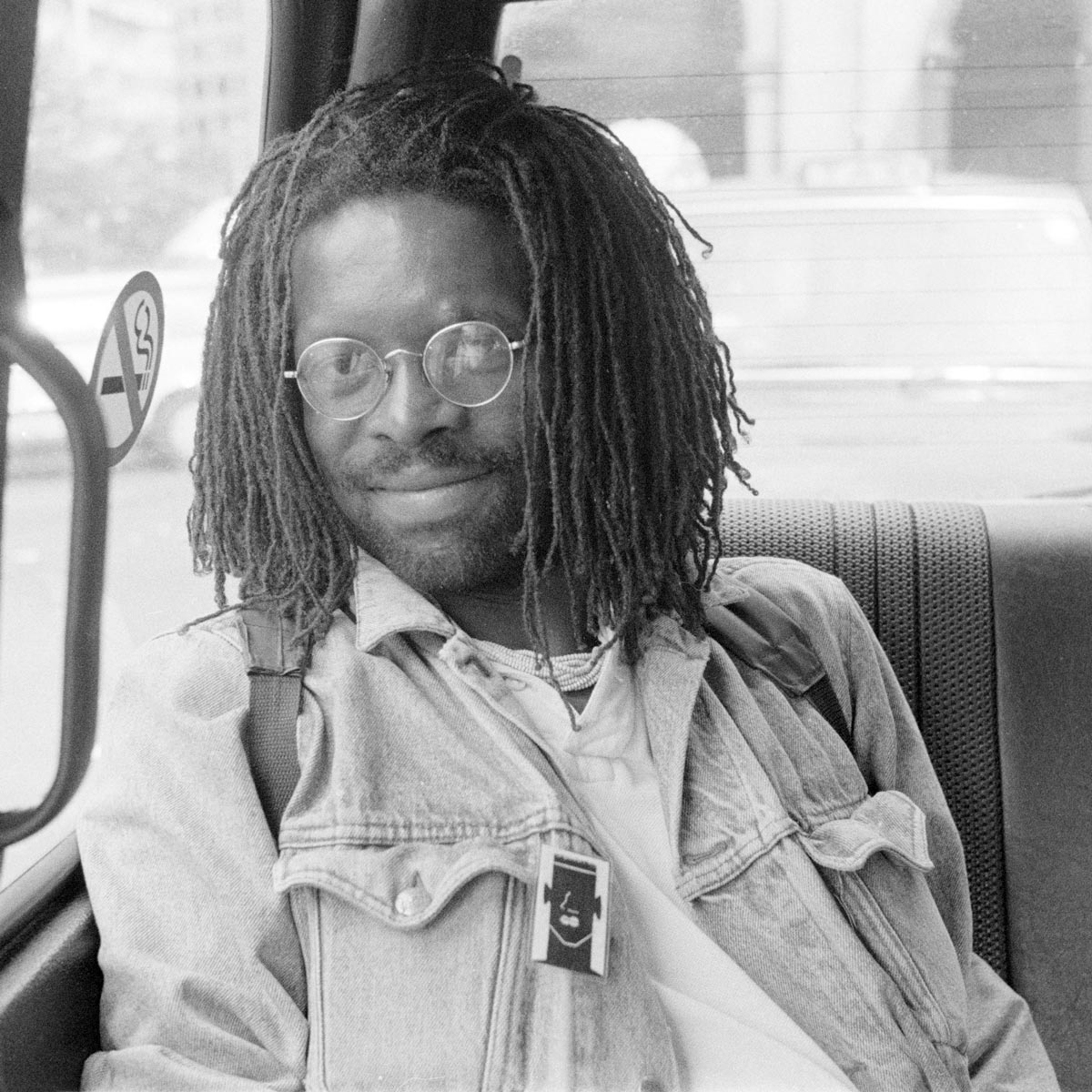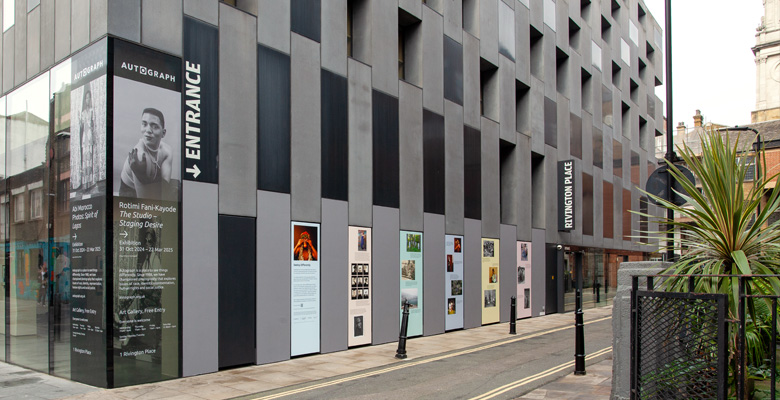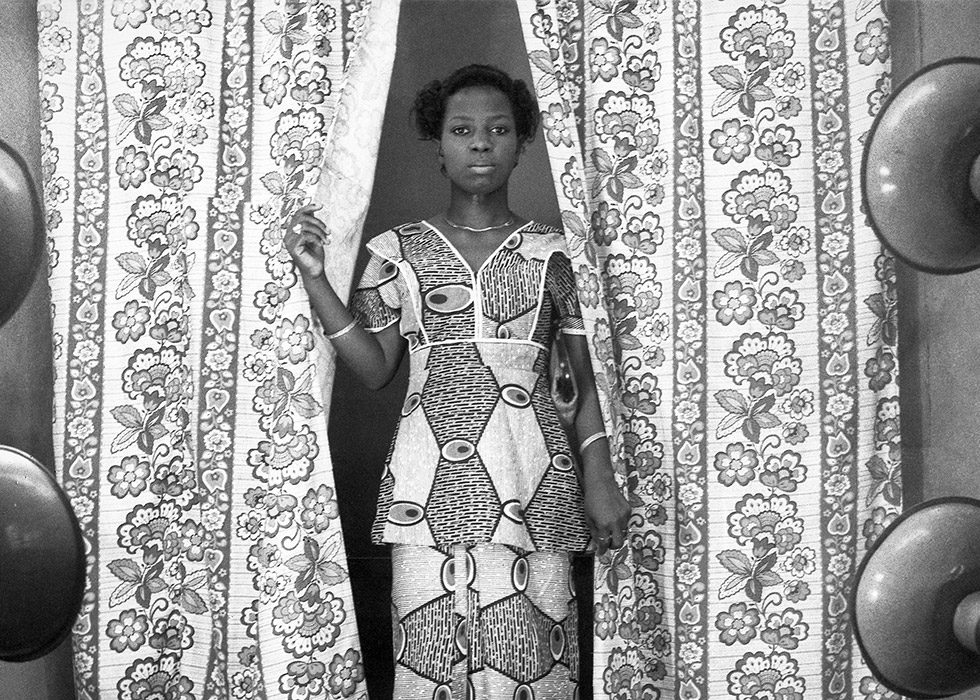In a space where the barriers between difference and fantasy are dissolved, Rotimi Fani-Kayode’s photographs are a spirited exploration of culture, intimacy, desire and pain. From 1983 until his death in 1989, the artist lived and worked in Brixton, where his studio transcended into a sanctuary visualising black queer self-expression.
A prominent figure in the Black British art scene, Fani-Kayode’s staged and crafted portraits playfully beckoning the viewer to embrace new possibilities of the self. The Studio – Staging Desire is the culmination of meticulous research into the artist’s archives, presenting never-before-seen works.
The studio enabled Fani-Kayode to live, be free, find love and express himself amongst London’s fluid, racial multiverse. With an emphasis on gesture, pose and a sense of longing the photographs he produced reveal a cosmos of signs and symbols to understand the dynamics of desire.
His transgressive and radical vision broke through boundaries of art history and Yoruba spirituality. These photographs reveal what it meant for Fani-Kayode to negotiate the status of ‘outsider’, turning this into the generative force that has defined the artist’s practice.
"My reality is not the same as that which often presented to us in western photography. As an African working in a western medium, I try to bring out the spiritual dimensions in my pictures so that concepts of reality become ambiguous and are opened to re-interpretation. This requires what Yoruba priests and artists call a technique of ecstasy." — Rotimi Fani-Kayode, 1988

Rotimi Fani-Kayode (born 1955, Lagos, Nigeria – died 1989, London, UK) is a widely recognised and seminal figure in contemporary art. At the core of his practice is a critical emphasis on the cultural politics of difference.
Fani-Kayode was born into a prominent Yoruba family before moving to England following the 1966 outbreak of civil war in Nigeria. He studied at Georgetown University and the Pratt Institute in the USA, before settling permanently in London in 1983 where he lived and worked until his early death from a short illness on 21 December 1989.
His photographs have been exhibited internationally since 1985, with numerous solo and group exhibitions. In 2003, his work featured in the African Pavilion at the 50th Venice Biennale, and today his works are represented in major public and private collectors. Many of Fani-Kayode’s photographs were created in collaboration with his late partner Alex Hirst, collected in the posthumous publication Rotimi Fani-Kayode and Alex Hirst: Photographs (1996). Alongside his practice as an artist, Fani-Kayode was one of the first chairs of Autograph, London.
24" x 20" edition from The Studio – Staging Desire. Collect Rotimi Fani-Kayode's work and support Autograph.
Shop now
Everyone is welcome at Autograph. Planning a visit? Have a look at our Visit Us page to find out more about getting to the gallery, accessibility and more.

The first exhibition of these remarkable portraits capturing the rich style and joyous spirit of Lagos in the 1970s.
Find out more.png)

Banner image: Rotimi Fani-Kayode, Untitled, 1988. © Rotimi Fani- Kayode. Courtesy of Autograph, London
Exhibition preview: 1, 5, 7) Photographs by Kate Elliott. 2-4, 6) All: Rotimi Fani-Kayode, Untitled, 1988. Courtesy Autograph, London.
About the artist: Sunil Gupta, Portrait of Rotimi Fani-Kayode. © and courtesy Sunil Gutpa. Visit us: Photograph by Kate Elliott. More at Autograph: Abi Morocco Photos, Aina Street, Shogunle, Lagos [detail], 1979. Courtesy Lagos Studio Archives. © Abi Morocco Photos.
Autograph is a space to see things differently. Since 1988, we have championed photography that explores issues of race, identity, representation, human rights and social justice, sharing how photographs reflect lived experiences and shape our understanding of ourselves and others.